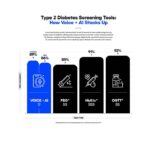Breaking Stereotypes: Flourishing in Nonclinical Positions as Healthcare Professionals
In the healthcare industry, the perception has long been that healthcare professionals solely operate in clinical environments. However, breaking stereotypes has become a crucial aspect of modern healthcare, as professionals increasingly realize the potential of nonclinical positions for career growth and making a meaningful impact. These roles not only diversify healthcare teams but also provide opportunities for professionals to pursue their passions, strengths, and interests, ultimately creating a more well-rounded and efficient healthcare system.
Contrary to popular belief, nonclinical positions in healthcare are far from limited. From healthcare administration and management to research and development, there is a wide array of nonclinical roles that healthcare professionals can excel in. By embracing these opportunities, professionals can contribute to improving patient care, enhancing processes, and developing innovative solutions.
One area where healthcare professionals can thrive outside of clinical settings is healthcare administration and management. These roles play a crucial role in effectively managing healthcare organizations, ensuring the delivery of quality care, and optimizing resources. Professionals in administrative positions work behind the scenes, coordinating and streamlining operations, implementing policies, and managing financial and human resources. Their expertise allows for the smooth functioning of healthcare organizations, ultimately benefitting patients and staff.
Another nonclinical avenue for healthcare professionals is research and development. These roles enable professionals to explore their curiosity, contribute to medical advancements, and further the understanding of diseases and treatment modalities. By conducting research, analyzing data, and developing new protocols, healthcare professionals can significantly impact the future of healthcare, even without direct patient interaction. This research can lead to breakthroughs in medical technology, improved treatment options, and better patient outcomes.
Additionally, healthcare professionals can find fulfilling careers in areas such as health education and public health. By assuming roles in health education, professionals can raise public awareness, educate communities about disease prevention, and promote healthy lifestyles. Similarly, public health positions allow professionals to design and implement policies and programs aimed at preventing diseases, promoting vaccination campaigns, and advancing community well-being. These roles directly contribute to a healthier society and underscore the importance of nonclinical positions in healthcare.
Breaking stereotypes and flourishing in nonclinical positions as healthcare professionals requires a willingness to adapt and learn new skills. Today, this can be facilitated through online courses, workshops, and professional development opportunities. By investing in themselves, healthcare professionals can acquire the tools and qualifications needed to excel in nonclinical roles. Furthermore, building strong networks and seeking mentors who have successfully transitioned to nonclinical positions can provide valuable guidance and knowledge.
In an era where healthcare professionals are expected to be adaptable and innovative, embracing nonclinical positions broadens career prospects. It allows professionals to utilize their unique skills, interests, and strengths to make significant contributions to the healthcare industry. Breaking stereotypes and promoting the importance of nonclinical roles not only encourages career growth but also enhances the overall quality and efficiency of healthcare services.
In conclusion, breaking stereotypes in the healthcare industry involves recognizing the potential of nonclinical positions. By pursuing careers in healthcare administration and management, research and development, health education, and public health, professionals can thrive in nonclinical roles while making a substantial impact on patient care and the healthcare system as a whole. With the right skills, qualifications, and support, healthcare professionals can flourish in nonclinical positions and help shape the future of healthcare.







No Comments
Leave a comment Cancel